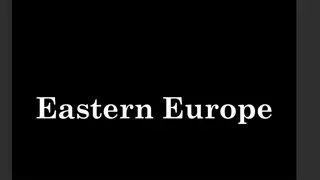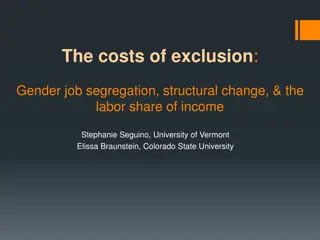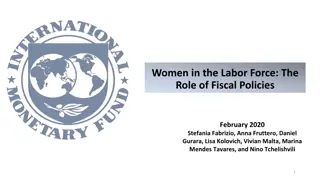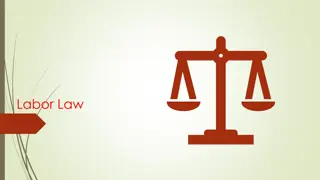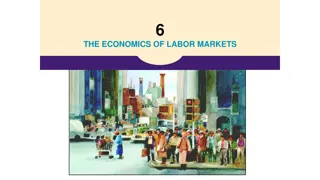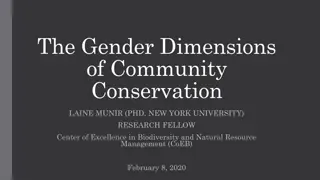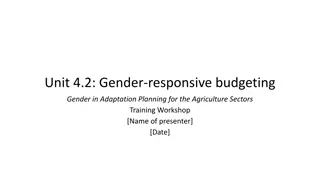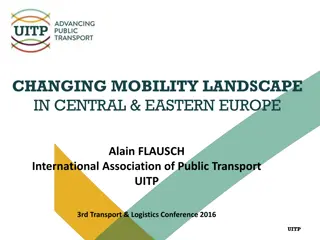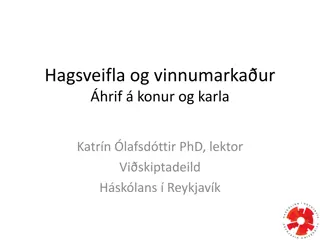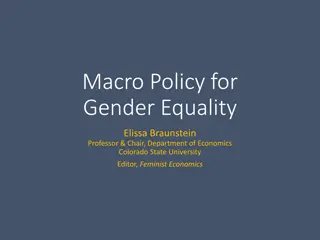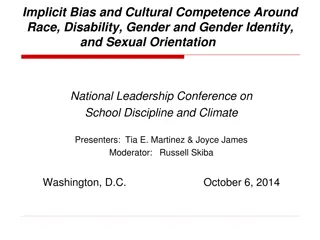
Gender Disparities in Eastern Europe Labor Trends
Explore the gender gaps and employment status in Eastern Europe, focusing on labor force participation rates, informal employment, maternity leave coverage, and recent trends in women's work. Discover key insights and comparisons in the region.
Download Presentation

Please find below an Image/Link to download the presentation.
The content on the website is provided AS IS for your information and personal use only. It may not be sold, licensed, or shared on other websites without obtaining consent from the author. If you encounter any issues during the download, it is possible that the publisher has removed the file from their server.
You are allowed to download the files provided on this website for personal or commercial use, subject to the condition that they are used lawfully. All files are the property of their respective owners.
The content on the website is provided AS IS for your information and personal use only. It may not be sold, licensed, or shared on other websites without obtaining consent from the author.
E N D
Presentation Transcript
Mariko Ouchi ILO-Budapest Office
Gender gaps in labour force participation rates by region Eastern Europe
Employment status by sex across regions, 2015 Eastern Europe
Employment by sector and sex Eastern Europe and Central Asia
Informal employment as % of non-agricultural employment Eastern Europe and Central Asia
Person working less than 35 hours per week, by status of employment Eastern Europe
Percentage of women legally and effectively covered by maternity leave and benefits Eastern Europe and Central Asia
Maternity leave duration and amount of cash benefits, 2015 Eastern Europe and Central Asia
Women at Work Recent trends in Eastern Europe in global comparison - Summary Labour force participation rate in EE: - Gender gap is relatively low but not much progress observed in the past 20 years; Employment trends in EE: - Mostly formalized for both women and men; - Lower informal employment for women and - Higher concentration of female employment in service sector; - Relatively high percentage of women working in full time in EE. However - Less women working in full time than men and - about of self-employed women in EE working with shorter hours; Maternity protection in EE and Central Asia: - Relatively high legal and effective coverage of maternity leave and benefits which is in compliance with C183
Thank you very much for your attention!


